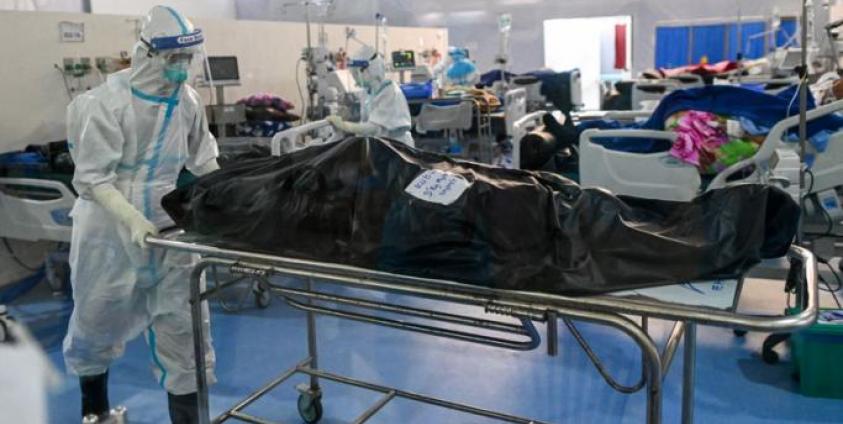In a clinic in a remote Myanmar town, some of the few doctors still working after the coup emptied hospitals are battling to keep their COVID-19 patients alive as the virus resurges.
Infections are spiking in Myanmar, with the State Administration Council - as the military junta calls itself - reporting more than 4000 cases on Thursday, in a crisis made worse by shortages of critical medical equipment.
AFP footage from inside a clinic in the northwestern town of Kalay showed patients slumped in makeshift beds, oxygen canisters at their feet.
One man gasped for breath, his head lolling as he struggled to respond to questions from a doctor.
"The service to patients has collapsed," Dr. Than Bil Luai, director of the Wesley Hospital, told AFP.
"There are many hospitals, surgery rooms, laboratories... but there aren't enough medical workers working."
"This healthcare system has become useless."
Myanmar's doctors have been at the forefront of a nationwide civil disobedience movement that has drawn in thousands of civil servants and crippled the economy.
Many stricken by the coronavirus are also avoiding military hospitals due to mistrust of the junta, with their loved ones instead joining long queues across the country to try their luck for oxygen cylinders.
"Before the coup, prevention against COVID-19 was good and the government often released notices and announcements," said Ca Meng, who returned to Kalay from Yangon when her mother contracted the virus.
"But after the coup, we are afraid of everything and we didn't pay much attention to the COVID-19... but suddenly it came back," she said.
"And now there is no prevention."
This week the junta called for doctors and nurses to volunteer for the anti-Covid effort, admitting it was facing "difficulties" in controlling the surge.
Dozens of blue oxygen cylinders waiting to be refilled stretched along a street in Kalay, a town of 130,000, with rugged hills to the east and west.
An ambulance with "Covid-19" written across one window in yellow letters passed by the residents waiting alongside them, its siren blaring, two figures in white hazard suits hanging out of the door.
For those unable to leave home because of sickness, volunteers are stepping up to help out.
A volunteer with a local charity who gave his name as John said he queues regularly to fill up oxygen cylinders for those who can't leave home and helps out with grocery shopping.
"I get upset when there's not oxygen when the patient needs it," he said.
"This third wave is quite different. I am a little bit afraid."
On the edge of town, a team unloaded a coffin into a cemetery of white Christian crosses standing out against the deep green of the hills.
A figure in a white hazmat suit standing over the coffin read from a book as the bereaved sat down by the coffin and wept.
"We have to take care ourselves and our families," said Ca Meng, whose mother later died from the virus.
"If not, it will be the extermination of our people."







